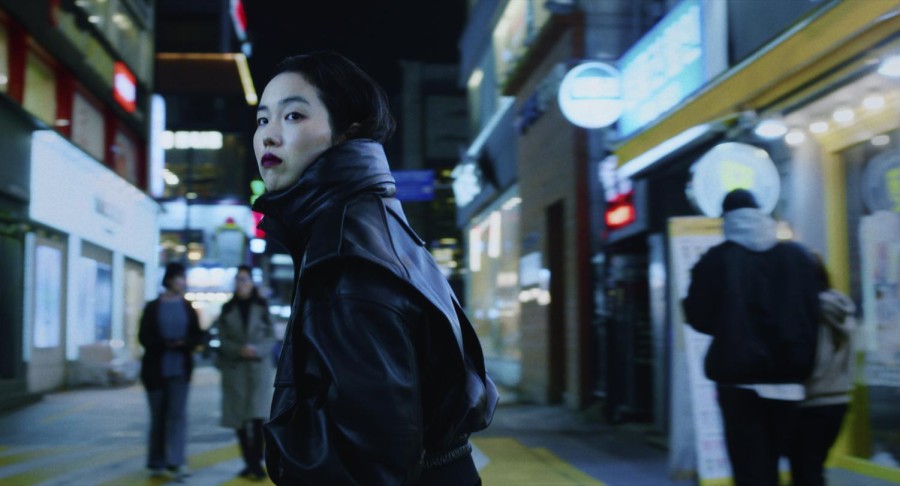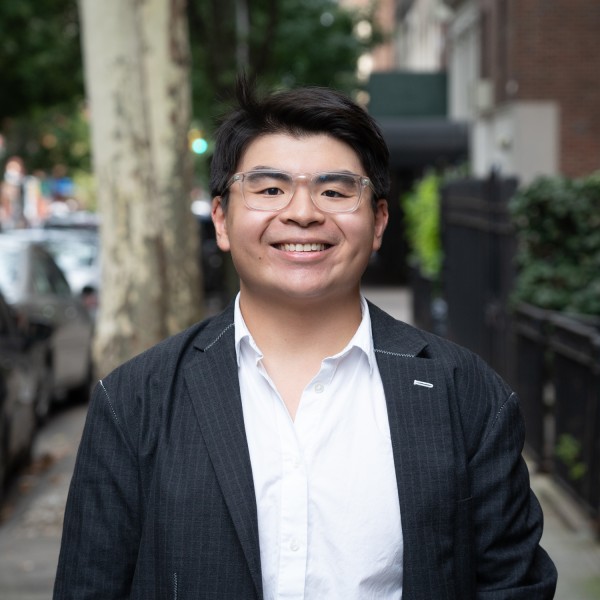Review: ‘Return to Seoul’ explores the tragic reconciliation of adopted identities
Initially released at the 2022 Cannes Film Festival, Davy Chou’s film is a moving drama that captures the thrills and confusion of navigating adulthood through the eyes of a Korean adoptee.
“Return to Seoul” runs at the Angelika Film Center from Feb.17. (Courtesy of Sony Pictures Classics)
February 27, 2023
In his recently released film “Return to Seoul,” Davy Chou takes audiences through a search for lost identities with scenes of nightlife, hedonism and awkward family meals. Premiering at Un Certain Regard at Cannes Film Festival in 2022, the film was Cambodia’s entry to the Academy Awards, and even made it onto the academy’s shortlist for Best International Feature Film. “Return to Seoul” follows Frédérique “Freddie” Benoît (Park Ji-min), an impulsive and stubborn adoptee who flies to Korea on a whim in search of her birth parents. Through the character of Freddie, Chou highlights the tragedy of feeling like a foreigner in one’s original and adopted countries both, while navigating the tumult of adulthood.
In his third feature length film, Chou continues his artistic exploration of reconciling dislocated identities. Coming from a Cambodian family who fled to France two years before the rise of the Khmer Rouge, Chou’s films — especially his 2011 documentary “Golden Slumbers” — illustrate a cinematic reclamation of a personal history previously deprived. “Return to Seoul” confronts this theme from a different angle. Rather than looking inward to his own family history, Chou frames the narrative from the perspective of Korean adoptees. Mainly drawing from the experiences of his close friend Lauren Badufle, who was adopted and raised in France, the story depicts the individual ramifications of South Korea’s mass foreign adoption schemes in past decades. Through the eyes of Freddie, audiences are given a painfully earnest account of what it’s like to be torn between diametrically opposite cultural environments.
This intense character study is convincingly realized by Park’s raw and unapologetic central performance. While the film is full of high caliber actors — notably Oh Kwang-rok as the emotionally unstable biological father and Guka Han’s demure Tena, a reserved and polite foil to Freddie — Park dominates every second that she is on screen. Despite this being her debut role, Park seamlessly immerses herself in the constructed reality in front of the camera. She perfectly balances Freddie’s fierce demeanor with subtle moments of vulnerability; her performance paints Freddie as a flawed but genuinely relatable protagonist.
In an interview with Indie Wire, Park stated that growing up in France around predominantly white communities gave her “a very strong survival instinct,” a trait she translates into Freddie’s defiance against male social authority and traditional etiquette. However, this guarded personality is also a detrimental consequence of her abandonment. Ironically, Freddie feels Korea is a “toxic” place for her, yet she actively sabotages and damages all her relationships — everyone around her is eventually pushed out of her life.
The film also employs electronic music and dance to further accentuate Freddie’s self-destructive tendencies. The score, composed by Jérémie Arache and Christophe Musset, transports viewers to the dreamy chaos of Seoul’s nightlife. The high tempo electronic sounds are simultaneously hypnotic and disorienting. This chaotic soundscape is a reflection of Freddie’s inner turmoil. In several scenes during which Freddie is faced with difficult choices, the music simply drowns out the diegetic noise and leaves Freddie lost in frantic dance scenes. Combining a frenzied score and Park’s explosive physicality, the film brings Freddie’s thrilling spontaneity to the forefront, highlighting her spiraling, self-destructive and constantly shifting journey of self-realization.
While “Return to Seoul” describes the inherent struggle of finding one’s identity as an adult, the film more specifically focuses on how this struggle is intensified for international adoptees. Originally titled “All The People I’ll Never Be” when it first premiered at Cannes, the theme of identity crisis is constant throughout the film. Chou depicts the drastic changes in Freddie’s life across eight years. Superficially, she matures from being a reckless backpacker to an elegant executive in the weapons industry. However, as Freddie moves from one phase of her life to the next, she seems less sure of who she is and what she wants from her life. At the end of the film, “Return to Seoul” does not provide a neat conclusion to its exploration of lost identities and search for meaning. Freddie’s journey is full of anger, tragic separation and unexpected shifts. To Chou, the process of reconciling contradictory identities is a lifelong challenge — life is defined by adaptation and reinventing oneself, not finding a single mold to fit into.
Contact Mick Gaw at [email protected].

























































































































































